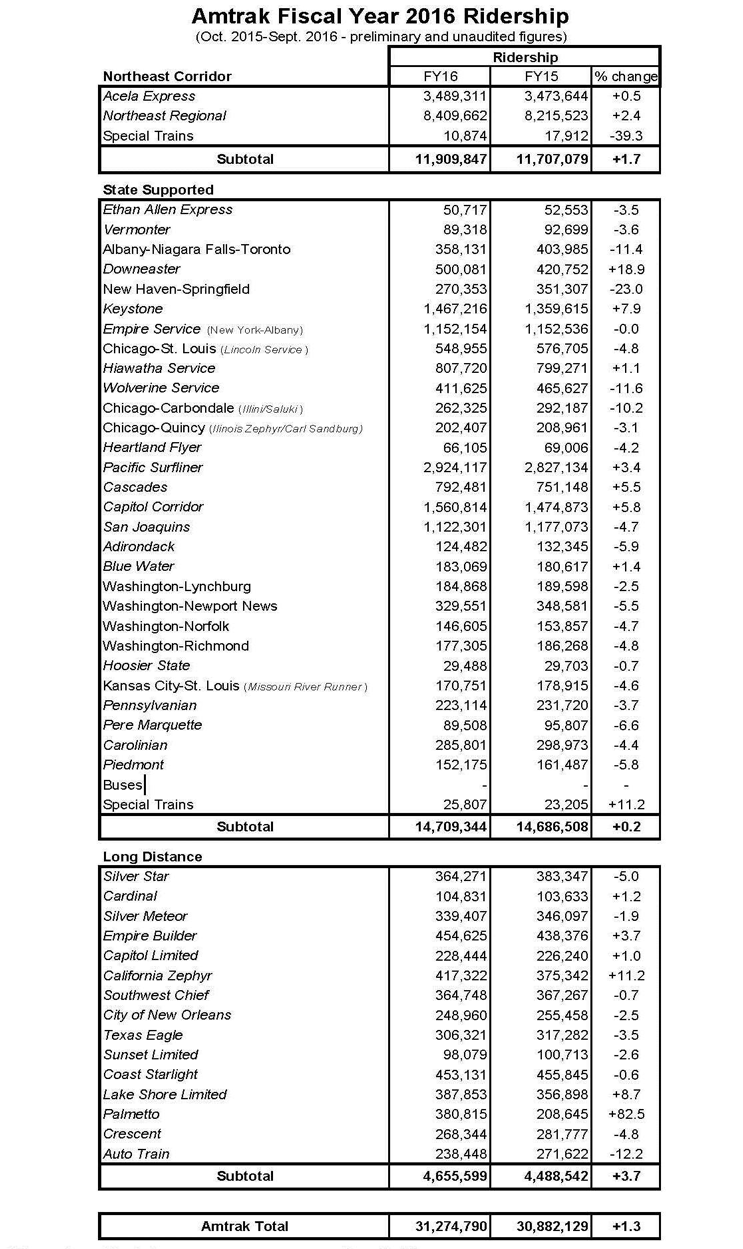Train service only will work where there is enough demand to make it work, pure and simple. In theory a corridor like Miami to Tampa should be dense enough population to support train travel, given especially how crowded Florida highways are, but if people choose not to use them, perhaps for example if taking the train was a lot more expensive then taking a car and likely slower, it will fail, pure and simple. People will curse at traffic jams, complain bitterly about the @&&@#*! politicians who do nothing, but when given for example train service where they wouldn't have to drive, they take the aggravation and whatnot of driving (among other things, people don't factor in the cost of driving totally, they might say "I will spend X on gasoline and Y on parking if I drive", but leave out the wear and tear on the car, the cost of insurance,etc. The figure for tax reasons a car costs around 55c a mile or so last I checked, if you trip is several hundred miles, that could come out to be a lot of money they don't figure for).
Part of the problem with Amtrak is they are burdened by having to maintain routes that make no sense, often because of the same politicians who clamor to privatize Amtrak or get rid of it, there are a lot of towns being served by trains where ridership is nill, and trains have fixed costs of operation. The people of Nowhere Special want to have train service, they would see losing it as 'abandoning them', but they their politicians claim Amtrak is useless and 'we don't want to pay for people in the Northeast to use Amtrak" (and leave out, of course, the many things, including those highways they love to expand or build, that are heavily paid for by the federal government, when interstate highways are built unless a state totally forgoes federal money (usually so they can make it a toll road), in many states large percent of the cost comes from the federal government, and it dwarfs the amount that state provides in for example gas taxes, whereas other states spend a lot more on highway construction than they get from the feds. Problem is people when it is them receiving the money, it is the way it should be, when others get it, it is frivolous.
When you have population density and more importantly business traffic, it makes sense to have alternatives. Many of the sun belt cities that were harkened as the future of the country, going to be the business centers, have hit brick walls, choking on traffic (Atlanta is one of them, our HQ is there, and when I go there the traffic reminds me of the Cross Bronx Expressway), whereas places that have mass transit plants do much better, even as much as people complain about them. A lot of things are subsidized, and for example the airline industry is much like Amtrak in that popular routes or less popular one, subsidies keep it going, airlines provide service to fly speck airports and rural areas, and the only way that happens is because it is subsidized. The cost of flying could become economically a lot less viable if airlines had to pay for the cost of airports, the cost of maintaining those airports, the cost of the air traffic control system and all the other parts that today they pay only a small fraction of the cost. Trucking is another heavily subdidized industry, what trucks pay for in road use taxes and diesel fuel taxes covers only a fraction of the cost of their trucks operating on the roads, a 40 ton rig causes exponentially more damage and wear to roads than a car does, yet cars pay for a lot more of the road costs then trucks do proportionally (a car typically pays more in fuel taxes then it causes in wear and tear).
As I wrote in a post in the subway forum, the reason for these subsidies is that in the end, they create much more economic wealth than is spent, which sadly most people cannot see. Subsidizing Amtrak, for example, especially on the NE corridor, allows business people to travel, it cuts down the total commute time in many cases, and allows for business to happen, subsidizing mass transit means people can get to their jobs on time, and also means that businesses in the region can count on people being able to affordable travel to where they are, and also means they can get people from a wide metropolitan area, whereas for example expanding highways or building highways tends to create more congestion, and worse, because jobs are all over the place, you can't build enough highways to satisfy demand.





